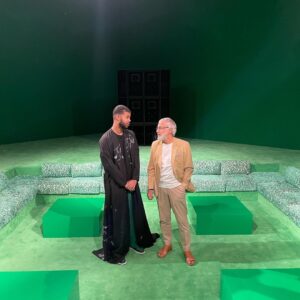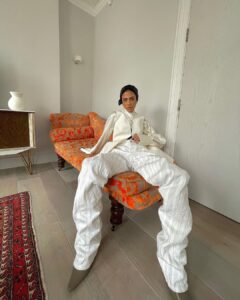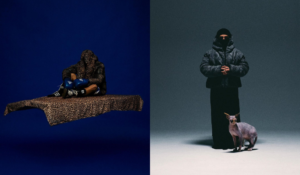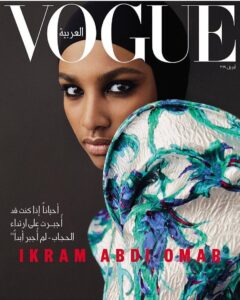Influential Muslim Creators Who Are Changing the Narrative
05/04/2023


As we are currently in the midst of this year’s Ramadan season, Muslims around the world tune in to their faith and focus on drawing closer. In our modern world, the evolution and modernisation of social media has allowed content creators and artists from all communities and cultures to use their platform to inspire, influence and innovate and whilst everyone has their own idea and intentions for how to spend this holy month, there is a number of creatives that have been vocal about their faith and use it as a force of power in the work they create.
Here are some of the most influential modern voices of Islamic creatives:
Younes Bendjima
The Algerian French model who has walked for brands like Givenchy, Hermes and Missoni has always been incredibly vocal about his faith and religion through his social media platforms and attributes his successes to the relationship he has with his God. The model has constantly been an advocate and voice for the Muslim community and even though fashion remains at the forefront for Bendjima, he still manages to incorporate his faith in his work. In 2019, he launched his own creative agency called StudioFY7 with good friend and artist Mustafa the Poet and Kamil Abbas. He uses the agency to amplify the needs of the Palestine and Yemen community through raising funds for organisations that has helped him increased his faith further.

Younes Bendjima
Mustafa the Poet
The Canadian born Sudanese poet and songwriter, Mustafa is an incredible voice for the Muslim community who has been featured in publications like i-D, GQ and Dazed. The core of his work, especially seen through his debut album When Smoke Rises, is to use the vulnerability of folk music – a genre that very rarely gives space for the Black Muslim experience. There are very clear references to his faith seen throughout his work as according to Mustafa, “being a Muslim in this climate, being an advocate for Palestine, being Black, being from the inner city, you feel like the entire world is against you. You feel like there are so many powers that want to silence and bury you”.

Mustafa
Nemahsis
Musician and content creator Nehmasis is a Canadian born Palestinian who initially gained recognition through Tik-Tok, where she shared a story on how she was discriminated against for being Muslim and wearing a hijab. Since then, she now has over 500K followers and creates engaging content on fashion, beauty and her music. Though she has collaborated with brands like I.Am.Gia and MISBHV, her music and content focuses on physical appearance as a Muslim woman and her journey in overcoming her issues with her own personal style. She also emphasises on the significance of speaking up on religious discrimination and stigmatisation and wants to “change people’s perspectives on hijab, POC women and Muslims”.

Nemahsis
Omar Khaleel
In the works of third generation British-Yemeni photographer Omar Khaleel, we can see evocative yet stylistic references to his bi-cutural roots and Islamic culture. The London-based photographer has collaborated with brands like HYPEBEAST, Puma and Nike. He has created captivating photographic collections that highlights an introspective look into his Arab and Islamic heritage and the lack of representation of the British-Arab community in the UK. He is ultimately pleased to see that the Arab and it’s religious cultures are starting to take control of media narratives as often representations of their image has constantly been portrayed through challenging stereotypical inaccurate depictions that have been harmful to their identity.

Omar Khaleel
Ikram Abdi
The first hijab-wearing model to feature on the cover of Vogue, Ikram Abdi has since then became the face of Burberry and walked for Jean Paul Gaultier, Balmain, and Harris Reed. The model holds her faith close to her heart through her career. She believes her role in the industry is to embody women’s empowerment. Abdi has paved the way for women from the modern Muslim community to enter the luxury fashion industry and though modelling is not usually culturally accepted in the Islam, she feels a responsibility to normalise this. To change the way Muslim women are seen and hopefully be able to set boundaries based on religious beliefs in the fashion world.

Ikra Mabdi